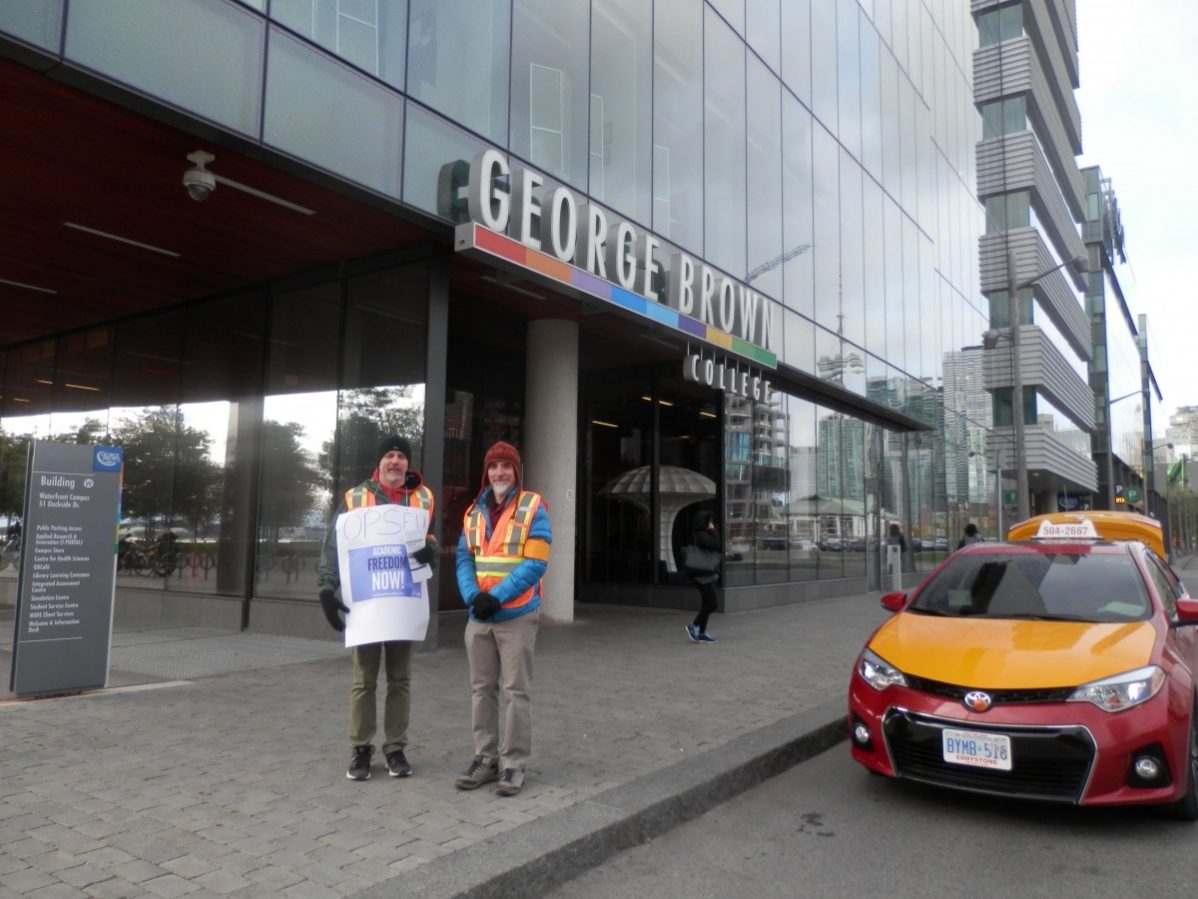Two weeks after OPSEU Locals 556 and 557, the unions representing George Brown College’s (GBC) faculty and support staff, sent a letter to the GBC board of governors criticizing the college’s anti-racism plan, they have yet to receive a response. But that hasn’t come as a surprise to Local 557 president Megan Carter.
“I definitely wouldn’t have wanted an immediate response cause you definitely want a thoughtful, laid out response. So, I think it’s reasonable to give time for that,” says Carter.
The letter outlined three primary issues as well as recommendations on how to address them. These issues included lack of action and transparency from the anti-racism and equity advisory committee, improper conduction of an employee equity and diversity survey, as well as delays on their anti-racism action plan.
“Moving into the search for the new president, we thought it was appropriate to get these issues addressed and something we would like to see the new president address,” says first vice president treasurer for the faculty local, local 556 Paul Petrie.
“The letter just goes hand in hand with the work that we have been doing and promoting and saying as a union,” says Carter.
One of the issues laid out in the letter was the lack of movement from the college’s anti-racism and equity advisory committee. They also voiced concerns around accountability and transparency since the director of anti-racism, equity, and human rights services will now be chairing the committee.
“Here we are nearly eight months after the anti-racism and equity committee was initiated and we still have no action coming out of it,” says Petrie.
Another key issue in the letter was around a recent employee survey on equity and diversity. The survey was conducted internally so there were concerns from faculty about lack of anonymity and the consequences they could face if identified after filling it out. Further, the unions say the survey questions disregarded the Ontario racism act and the BlackNorth pledge which states that race-based data must be collected. The unions worry that by not including questions about race the data could be manipulated.
“Especially related to the equity and diversity survey, people were reaching out to me saying ‘I’m not comfortable filling out this survey. It’s run through the college. I can be identified,’” says Petrie.
They believe if these issues aren’t addressed, they will continue to impact students in and outside of the union as Carter notes that there have been many student staff in the union. Petrie worries that internal biases and microaggressions from staff will have a larger effect on students’ college experiences.
“The actions of the faculty and support staff trickle down to and impact the students, so we are trying to change all that culture so that students do have that best experience,” says Petrie.
“Prior to COVID, we probably had close to 800 student staff that were in the union so when we’re talking about issues from support staff we are including our student staff,” says Carter.
In the end, the union wants to make sure that the letter is not seen as complaints and is responded to with actions that can begin with the recommendations they outlined.
“We need to start. We just need to start doing something. We need to stop with the ‘let’s think about it for a whole five years and then we’ll do it.’ Let’s just do something now and if it works, great, and if it doesn’t we try something new,” says Carter.


